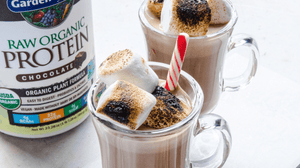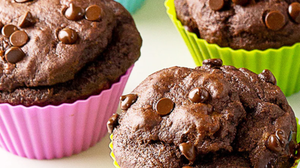
Prioritising and maintaining a healthy gut is crucial for your overall health and wellbeing. However, if you’re more susceptible to stomach pain and bloating, you may be developing symptoms of irritable bowel syndrome (IBS). We’ve put together all the ins and outs to IBS, to help you get to know your gut, including some of our top gut health supplements.
What is IBS?
Irritable bowel syndrome is a gut condition that can affect many, and it isn’t something you can just fix, it’s here for the long run. This gut condition affects the digestive system, more specifically the large intestine and may cause quite a lot of discomfort.
When you have an IBS spell, it can come and go, but it can last anywhere from a few days to a few months. Although there’s no cure, subtle diet changes and the help of supplements may help keep the IBS symptoms at bay.
What Causes IBS
The cause of Irritable bowel syndrome is yet to be determined, but it’s suggested that it may be influenced the following:
Pace of food passing through your gut
Stress
Oversensitivity in the gut
History of IBS or gut related issues in your family
Types of Irritable Bowel Syndrome
Knowing what type of IBS you have, may help provide you with catered advice that may help your IBS symptoms. Here are the 3 different types of Irritable Bowel Syndrome, and what to look out for to determine what type you have:
IBS-C (IBS with constipation) - constipation with hard or lumpy stool
IBS-D (IBS with diarrhoea) - loose or watery stool
IBS-M (IBS with mixed bowel habits) - experiencing both hard and loose stool on the same day
What Are the Biggest Symptoms of IBS?
Depending on the type of IBS, symptoms can vary, but regardless they can cause quite a lot of discomfort and pain in your abdominals. Also, so flare ups may be worse than others. But if you’re yet to be diagnosed with IBS, here are common IBS symptoms to look out for:
Stomach cramps
Change in bowel movement
Bloating
Excessive wind
Constipation
Diarrhoea
Low energy
Passing mucus
If you’re experiencing any of these symptoms, we’d recommend consulting a professional to ensure you’re getting the right diagnosis.
What Foods to Eat With IBS
Nutrition is important with all thing's health and wellbeing, but prioritising your diet when you have IBS, may help keep the symptoms of IBS to a minimum. It’s also important to know that there’s some food that might trigger your symptoms, which is why we recommend introducing foods that are good for IBS. These IBS foods include:
1.Lean Meats
Out of all the food groups, protein is easy to digest and doesn’t cause gas. This is down to the bacteria in your gut not fermenting it. These lean meats include chicken, turkey, pork and certain cuts of beef.
However, we’d recommend being cautious if you have any fatty pieces of meat, as it may contain excess fat, which could cause inflammation and trigger symptoms.
2. Fermented Food
Foods such as kimchi, yoghurt and sauerkraut all contain natural strains of good bacteria that may help your gut.
3. Omega-3 Fish
Omega-3 fatty acids provide the body with a range of benefits, but it’s also a good for gut health. Good omega-3 source include:
Black cod
Herring
Mackerel
Salmon
We also have a wide range of omega-3 supplements, if you’d prefer taking a supplement, rather than cooking!
4. Low-FODMAP Vegetables
Although some vegetables may cause more discomfort when you have IBS, you don’t have to avoid all of them. So, to ensure you can still enjoy your five a day, here are just a few low-FODMAP vegetables to add to your meals:
Broccoli
Bell peppers
Carrots
Corn
Tomato
Turnip
How to Help IBS
Along with your diet, you can also introduce gut health supplements. At Garden of Life, we’ve got a wide range of microbiomes to target your gut health, even those tailored to your gender. Check out just some of them below!
1. Microbiome Supplements for Women
Our Microbiome Once Daily Women’s Capsules are designed to exclusively support women needs. Featuring 50 billion CFU per capsule, including 16 strains of live bacteria, you can help provide your gut with good bacteria that may help ease any IBS symptoms.
2. Microbiome Supplements for Men
We have two microbiome supplements for men, Once Daily Men’s and Men 50+ Shelf. Similar to the women’s microbiome supplements, these supplements are crafted to meet men’s specific needs.
Discover more ways you can protect your gut health here:

How to Improve Gut Health? Best Gut Health Supplements
Discover the full range, where you'll find tailored formulas that meet you and your family's health needs!









